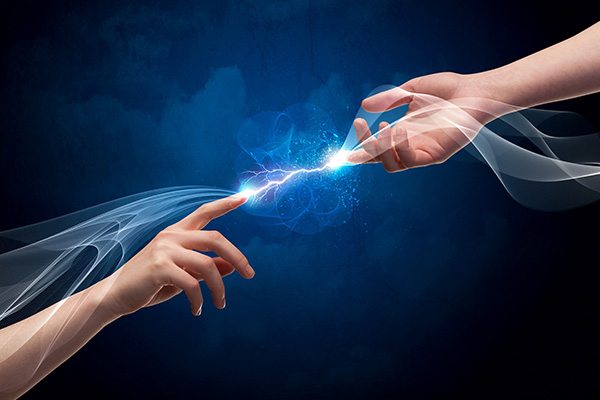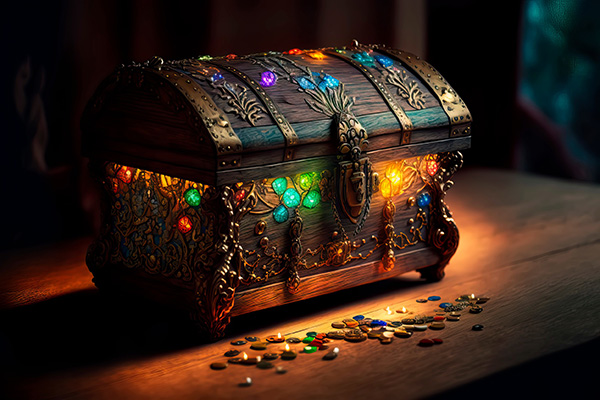energy imprint
Extraordinary Evidence Of Reincarnation And Past Lives
 Have you ever felt an irresistible desire to visit a certain foreign country? Are you obsessed with a certain culture or have you always been fascinated by a certain period of history? Do you collect certain objects or paraphernalia that represent some kind of ancient spiritual tradition or esoteric practice?
Have you ever felt an irresistible desire to visit a certain foreign country? Are you obsessed with a certain culture or have you always been fascinated by a certain period of history? Do you collect certain objects or paraphernalia that represent some kind of ancient spiritual tradition or esoteric practice?
Our inexplicable interests and unusual hobbies often reveal much about our past lives.
Reincarnation is a topic that has captured the imagination of people since ancient times as a thought-provoking perspective on life, death, and the soul’s journey through many incarnations. Physical life is not a singular experience, but a cycle of rebirth, learning, and evolution.
The concept of reincarnation is the belief that our soul, or non-physical essence, is reborn into a new life after we die.
Central to Indian religions such as Hinduism, Buddhism, Jainism, and Sikhism, this spiritual concept is also found in certain streams of Judaism, among indigenous peoples of the Americas and Australian Aborigines, and in neo-pagan religions such as Wicca.
Various esoteric and mystical religious traditions, such as the Druze, Rosicrucians, Theosophy, and Anthroposophy, also incorporate ideas of reincarnation and the evolution of the soul.
In Kabbalah, the mystical branch of Judaism, reincarnation is also an important belief, referred to as gilgul neshamot, or the “cycle of souls.” Kabbalists teach that souls reincarnate to achieve spiritual redemption or tikkun, allowing individuals to correct mistakes from previous lives and fulfill their unique spiritual missions.
Angelic Energy Maintenance For Empaths
 As an empath and psychic counselor, I have had to learn how best to navigate the intense energies that come with working with others.
As an empath and psychic counselor, I have had to learn how best to navigate the intense energies that come with working with others.
Early on, I often found myself drained, overwhelmed, and weighed down by emotional clutter that wasn’t even mine. I didn’t realize how much I was absorbing from clients, loved ones, and even strangers.
Over time, I’ve learned that clearing and protecting my energy is essential not only for my well-being, but also for maintaining clarity in my work. By understanding how to release what doesn’t belong to me and strengthen my auric boundaries, I have been able to thrive both personally and professionally.
Being an empath means that you’re highly sensitive and deeply attuned to the emotions and energy of those around you. You naturally absorb the feelings of others, which can often result in you carrying the emotional weight of others.
This pattern shows up not only in romantic relationships, but also in work, family, and friendships. If you’re constantly picking up the extremes of other people’s energy, it can leave you feeling heavy, drained, irritable, and disconnected from yourself – as if nothing you try makes a difference. This happens because instead of directing your own energy, you’re constantly processing someone else’s.
Empaths are like emotional air purifiers, prone to absorbing the energies of everyone around them – whether it’s a stranger in the grocery store, your partner, your boss, or your family. When your aura becomes clogged and dysfunctional, you experience heaviness, discomfort, and emotional instability.
The Spiritual Significance Of A September Cleaning
 Did you know that cleaning can be so much more than a boring chore? When done mindfully and with intention, it can become a transformative ritual that aligns our physical environment and the spaces in which we live and work with higher spiritual energies.
Did you know that cleaning can be so much more than a boring chore? When done mindfully and with intention, it can become a transformative ritual that aligns our physical environment and the spaces in which we live and work with higher spiritual energies.
By clearing away dirt, clutter, and disorder as a form of mindful meditation and cleansing ritual, you can also cleanse your inner being, releasing what no longer serves you and making room for new energies to flow. The act of cleansing can then serve as a bridge between the physical and spiritual realms, allowing the harmonious flow of life force energy, or chi, through your physical environment.
Everything in the universe is interconnected, including the spaces we inhabit. Metaphysically, our homes and workplaces are extensions of our own energy field. When these spaces are cluttered or dirty, they begin to affect or even block the flow of positive energy, leading to feelings of lethargy, confusion, and spiritual stagnation. More importantly, negative energy imprints and residues tend to accumulate in our homes through our interactions with other people and the outside world. Cleansing thus becomes an essential spiritual practice, similar to meditation or prayer, that helps restore balance, flow and harmony.
The physical act of cleaning is not only about maintaining order and hygiene in our surroundings, but also about aligning our internal energies and preparing our minds for deeper spiritual engagement. It’s like meditation, but with a broom and a mop!
By systematically organizing and cleaning, we can practice mindfulness and focus on the present moment and the task at hand. As unnecessary items are discarded and surfaces are cleaned, we experience a corresponding release of old emotions and thought patterns that no longer serve us. In this way, the simple act of wiping down a shelf or sweeping a floor can become a profound spiritual practice that connects us to the sacredness of the present moment.
Exploring Your Past Life Memories
 Have you ever had such a strong sense of déjà vu that you just couldn’t shake it? Or have you had a strange yet familiar dream about a particular place or time in history? Chances are you were experiencing a past-life memory.
Have you ever had such a strong sense of déjà vu that you just couldn’t shake it? Or have you had a strange yet familiar dream about a particular place or time in history? Chances are you were experiencing a past-life memory.
Both our physical body and our soul essence carry deep echoes of the past. We inherit cellular memories from our ancestors that are embedded in the genetic code of our bodies, while our souls carry energetic imprints and karmic wisdom from our previous incarnations.
Our soul is eternal and transcends individual lifetimes, accumulating wisdom, experiences and lessons across multiple incarnations.
Intense traumas, transformative events, and extreme hardships experienced by both our ancestors and ourselves in past lives are etched into our physical and spiritual DNA.
The legacy of these cellular and soul memories sometimes resurfaces in our present lives in a variety of ways. For example, it may manifest as an inexplicable behavior, an irrational phobia, an unusual talent, or a strange preference that can be traced back to past life experiences.
My First Foray Into Ribbon Psychometry
 Like “riding a bicycle,” spiritual knowledge and skills, once learned, are never lost or forgotten. Even if you haven’t practiced or used a certain skill for a long time, you can always quickly pick it up again because it is stored in your soul memory.
Like “riding a bicycle,” spiritual knowledge and skills, once learned, are never lost or forgotten. Even if you haven’t practiced or used a certain skill for a long time, you can always quickly pick it up again because it is stored in your soul memory.
There is a certain degree of permanence in spiritual growth and learning. Spiritual learning is very different from the acquisition of academic knowledge or vocational skills. Soul growth and spiritual development flows from deeply personal experiences, profound moments of insight, and personal transformations that forever change our soul essence at a fundamental level.
Our soul memory is essentially the memory bank of our higher self. It is like stored layers of enlightenment or the akashic records that preserve all of our acquired spiritual wisdom and abilities, making them readily accessible after periods or even lifetimes of non-use or neglect.
I was reminded of this fact at a recent mediumship event I attended where a medium demonstrated some of the psychic techniques and methods she had relied on in her own psychic development journey.
Decades ago, I attended a psychic development course at the Arthur Findlay College of Spiritualism and Psychic Sciences in Essex, England. During the course we did a fun exercise in which we practiced “ribbon psychometry.”
Energy Imprint, Energy Cord, Or Entity Attachment?
 In my work, I often encounter people who are experiencing phenomena that are negatively affecting their energy field, causing them to suffer a loss of physical, mental, emotional, and spiritual health and well-being.
In my work, I often encounter people who are experiencing phenomena that are negatively affecting their energy field, causing them to suffer a loss of physical, mental, emotional, and spiritual health and well-being.
Usually these problems are simply due to their own negative thinking, or external negative energy imprints or residues that their aura has picked up from toxic people or environments. In many cases, it can be due to the energy cord of a dysfunctional or unhealthy romantic relationship or other types of energy cords with family, friends, or co-workers that are contaminating or draining their personal energy and vitality.
In some cases, however, these negative energy influences have a far more sinister origin that the “carrier” or victim is rarely aware of, while it is destroying their well-being and wreaking havoc in their lives.
The problem is that many people do not understand the difference between negative energy imprints, energy cords, and evil entity or spirit attachments. In my experience, the confusion is mainly due to the fact that the effects these three categories of negative energy phenomena have on people are often similar, leading to misinterpretation of the source or cause of these influences and disturbances.
